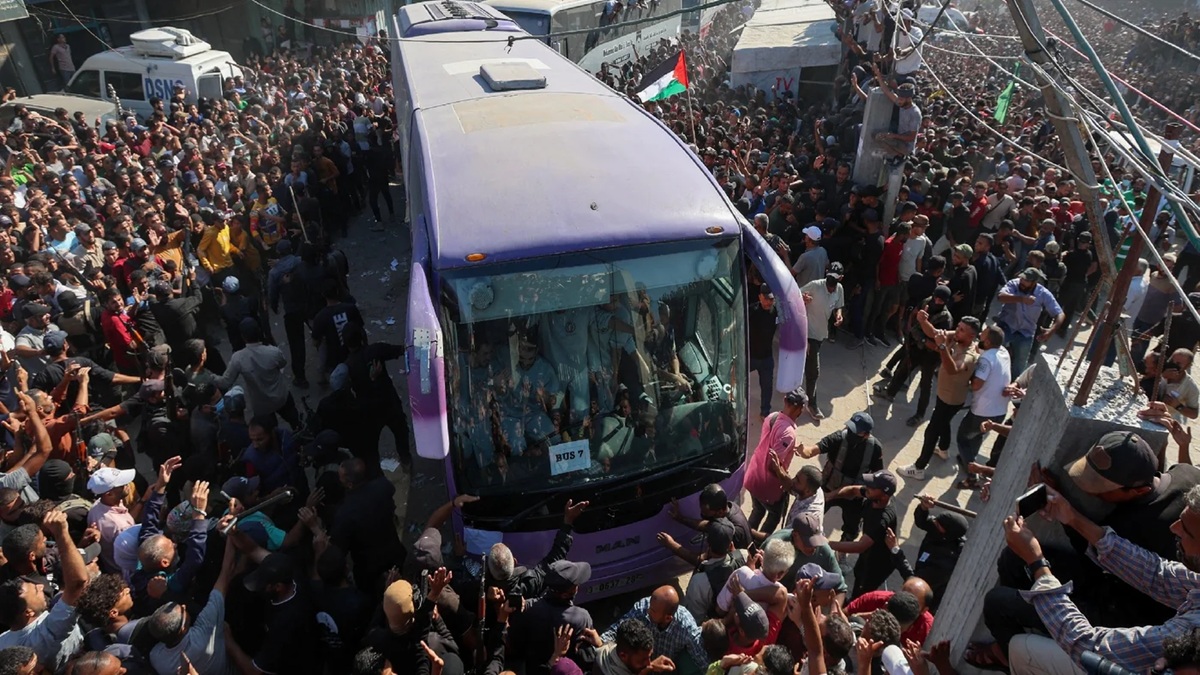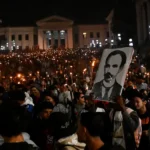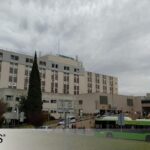
On the streets of Ramallah, in the occupied West Bank, hundreds of people gathered this Monday to welcome loved ones whom they had not seen in years or, in some cases, decades.
There were 88 of the Palestinians that Israel was holding hostage in its prisons and they were released; The other nearly 2,000, a figure that includes some 1,700 Palestinians captured in Gaza during the Israeli occupation and detained without charge, were sent back to Gaza, from where a minority would travel to neighboring countries.
Their faces were gaunt, the sharp corners decorated with freshly healed wounds. Their loved ones lifted them onto their shoulders with ease. One, wrapped in a Palestinian keffiyeh and with his fingers forming a V for victory, was placed before his mother, whose feet he began to kiss.
Thousands of people in Gaza receive Palestinian hostages released from Israeli prisons. pic.twitter.com/eEB96vKvUR
— Palestine Today (@Palestinahoy01) October 13, 2025
The Palestinian hostages were released by Israel just hours after all living Israeli hostages were returned from Gaza. The exchange marked the first step in a ceasefire.
In a single moment, he tried to make up for all the years apart.
He hugged his children, and they burst into tears.Excited reunion of a Palestinian hostage with his children in Gaza after being released from Israeli prisons. pic.twitter.com/DQTmdB5B7A
— Palestine Today (@Palestinahoy01) October 13, 2025
Before Monday’s release, 11,056 Palestinians were held hostage in Israeli prisons, according to statistics by the Israeli NGO HaMoked from October 2025. At least 3,500 of them were in administrative detention without trial.
Reception of Dr. Ahmed Mahna, after being released today from Israeli prisons.
Dr. Ahmed is the director of Al-Awda Hospital in Tal al-Zaatar, northern Gaza Strip, and was kidnapped by Israel while working at the hospital. pic.twitter.com/VyCqr6PVCx
— Palestine Today (@Palestinahoy01) October 13, 2025
The liberated Palestinians seemed to be in bad shape. Their cheekbones were prominent, some with marks from recent beatings and some unable to walk without the support of their families.
The British newspaper The Guardian reports that when asked about the treatment received in prisons, one of the freed Palestinians apologized and said that he could not respond for fear of reprisals from the Israeli authorities, limiting himself to saying that it was “horrible.” Another said conditions were “very, very, very difficult” and that the last two years in prison were the “worst two years of his life,” and asked not to be identified.
Palestinians have suffered abuse and inhuman treatment in Israeli prisons, according to the Israeli human rights organization B’Tselem. The group alleges that Palestinian detainees are denied medical treatment and adequate food, and suffer physical abuse in Israeli prisons.
This is Omar Al-Qarinawi, an 18-year-old Palestinian with autism who was kidnapped by “Israel” after being shot while trying to get some food in central Gaza, he was released today.
Imagine shooting an autistic person while waiting in line for food, the… pic.twitter.com/t8Jy7WGN7d
— Palestine Today (@Palestinahoy01) October 13, 2025
The human rights organization has long denounced that the mass imprisonment of Palestinians is used as a tool to impose the Israeli occupation of the Palestinian territories. Statistics estimate that up to 40% of Palestinians have been arrested at some point.
Israel also banned liberation celebrations on Monday in some areas of the Palestinian territories, firing tear gas at family members and journalists waiting near Ofer prison in the occupied West Bank. A leaflet distributed by the Israeli army warned people: “We are watching you everywhere” and threatened to arrest them again.
For some relatives of the detained Palestinians, the day could not be a celebration; Israel had told them that their loved ones would return home, only to discover at the last minute that they were being deported. “Why are you deporting him?” one woman cried through tears as police quickly led her away from the crowd.
But Israeli repression, threats and harassment were not enough to prevent the joy of thousands of Palestinians who celebrated the release of thousands of hostages who were in Israeli prisons.
These celebrations, in defiance of Israeli threats, are a sample of the resistance of the Palestinian people, which together with the international solidarity movement, which has taken a leap, as seen in the general strike in Italy and the enormous impact of the Sumud Global Flotilla, has put a limit on the genocide. The deepening and radicalization of this struggle is what will be able to definitively defeat the genocidal state of Israel and its imperialist accomplices.
Source: www.laizquierdadiario.com

